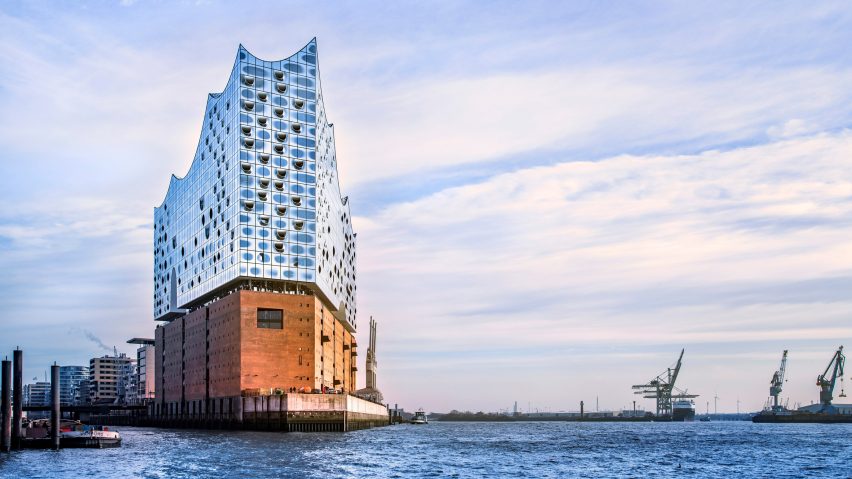Dezeen promotion: German ceramics company Villeroy & Boch has predicted the features that will appear in future hotels, in a recently released piece of research.
Voice-controlled hotel rooms that adjust light, temperature and music; an automated check in that uses face recognition; and bathrooms that measure your health are among the predictions made in Villeroy & Boch's new e-book The Hotel of the Future.
Although Villeroy & Boch admit that these might sound like science fiction to many readers, they've also given examples of where this futuristic technology is already being used in hotels. Examples include, the Henn na Hotel in Maihama Tokyo Bay, and The Westin, Hamburg, which is in Herzog & de Meuron's Elbphilharmonie.
By analysing current trends – including globalisation and urbanisation – and working with industry experts, Villeroy & Boch present its major findings with detailed evidence and case studies in the e-book.
"There seem to be no limits to the imagination – thanks to the new technologies that are about to fundamentally change our world. The internet of things, and the creation of thinking objects, in particular will revolutionise our lives," said the brand.
Paired with the rise in technology, the habits of modern people are also changing fast: many people work remotely and live in a more nomadic way, suggesting that they might be looking for a more home-away-from-home experience in any hotel they choose.
Possibilities for future hotels include mobile complexes that float on water or hang freely in space from wire cables so that they can be relocated like moving, vertical villages.
As we continue to become a society that is always on the move, transport and hotels could begin to merge: hotels on cruise ships, small flying hotels or hotels on wheels can take their guests from A to B.
Another alternative future scenario includes mobile homes that can be docked onto skeleton hotels that then provide all the infrastructure and services of a hotel without the need to move any belongings.
Inside these structures, Villeroy & Boch propose that humans are becoming "room creatures" who spend 95 per cent of their time inside. This means that the interiors of buildings will becoming increasingly tailored to providing wellness.
A perfect room climate, according to The Hotel of Future research, will promote health and tranquility, adjusting atmospheric moods depending on the time of day and the habits of the user. All of the room elements, from bathtub to carpet and curtains, will be coordinated to suit the needs of any guest.
"The hotel of the future must cover an enormous range. It must be simultaneously workplace, adventure playground and second home. Holistic experiences and service are in the foreground. Focusing on the individual guest will attain previously unknown dimensions," continued the brand.
Hotels will also have to be greener with more sustainable use of water and lower emissions to attract customers, says the research.
Tied in to both the trends of customisation and to the need for more sustainable buildings, Villeroy & Boch present its ideas for the "Future Bathroom".
"The bathroom of the future will become a new oasis of wellness, health and even entertainment as it becomes the focal point of our new living environment," said the brand.
To facilitate this, the future bathroom will be fully adaptive – changing as per the preference of the guest, highly energy efficient – using only recyclable and sustainable materials, and will use sensor technology to give individual feedback on health indicators such as weight and body fat percentage and even urine and stool analysis.
As with all other hotel features, adaptability in the bathroom will be key. Colours and lighting can change with a whim; wash basins and toilet bowls can adjust to the height and size of the guest; and bathroom mirrors can transform into entertainment screens.
As well as presenting ideas for future hotels, the e-book contains extensive data on current hotels around the world, from most expensive and largest hotels, to statistics on the number of Airbnb rooms rented in comparison to hotel rooms in different cities across the world.
Dezeen editor-in-chief Marcus Fairs hosted a panel discussion on innovative interiors at the Villeroy & Boch Smart Design and Wellbeing conference in Barcelona in October 2018.

